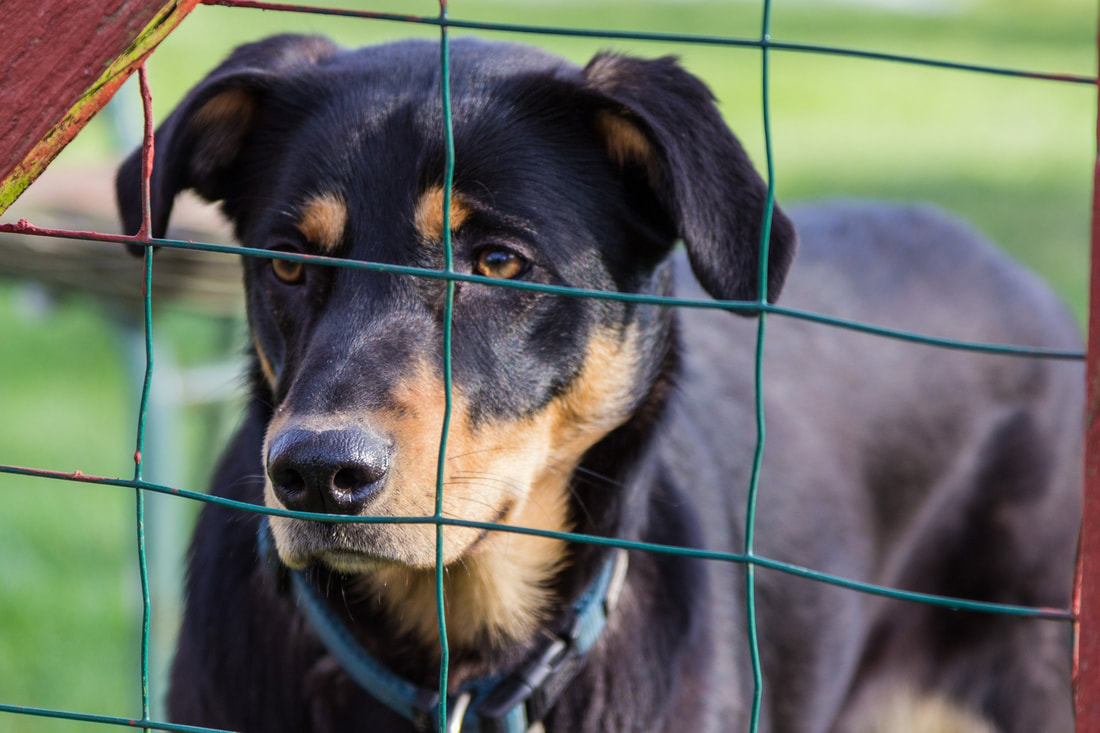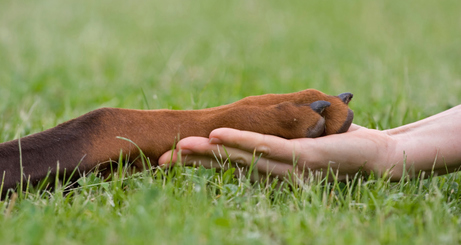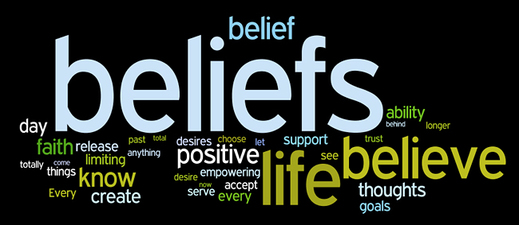|
On October 1, 2021, the Executive Director of ACCT Philly, the nonprofit which contracts with the city to provide animal shelter and control services resigned along with the Operations Director. An article in the Philadelphia Inquirer stated the Director resigned, "amid an ongoing dispute with some local shelter activists and volunteers." The so-called dispute stems from a number of issues which are included in a petition created by shelter volunteers and "Love Local Partners" (rescue groups and no kill shelters) which includes the following allegations:
I do not live in Philly and do not have any personal knowledge of the shelter operation there. I am blogging on this topic to share my own experiences regarding the subject of bullying and personal attacks related to animal shelter operations. The short version is pretty simple: There is no place for threats or personal attacks either toward or by members of animal shelter staff. I am zero tolerance about this. As outspoken as I am in my No Kill advocacy, my focus is and has always been on municipal accountability. Focusing on specific individuals may seem to make sense in the moment, but even if those individuals resign or are terminated, what has that really accomplished if the source of the problems are systemic? Nothing. Shelters which are operated by municipalities, or which are non-profits who hold municipal contracts, are held to different standards than non-profit shelters which are funded through donations and grants. The people who manage and work at animal shelters operated or funded by cities and counties are public servants. Their compensation and benefits are all paid for through public funds in the form of taxpayer dollars. People who are paid with public funds, whether they are elected officials, public servants or are performing public functions, are - by the nature of their jobs - open to criticism and comment. The reason for this is that they work for us. Of the people, by the people, for the people. As I wrote in my book, I feel strongly about the exercise of free speech. I not only see free speech as a right of all American citizens, but I would argue that it is our responsibility to speak out on matters of public concern. If issues are important enough for us to be outraged or angry, then they must be important enough for us to speak out and express ourselves to those who govern us. People complain to police departments all the time about increased patrolling related to reducing crime. They complain to public works departments about garbage pick-up. They complain to traffic engineering departments about the timing of traffic lights which they think are too slow or about roadway conditions. They complain about a host of issues most of which do not relate to the imminent threat of death. So why are things any different when it comes to animal shelters and the animal sheltering industry? I have seen plenty of posts on social media over the years in which shelter directors or staff are called a host of names and people make vague threats about them. I do not tolerate this behavior on my Paws4Change page on Facebook or the No Kill Huntsville page on Facebook. The comments are deleted and the people who made them are banned from further comment. I am zero tolerance on this subject. In the fifteen years I have advocated for animal shelter reform, I have personally observed this type of behavior less than a dozen times. I see it as coming from a fringe element which exists on social media because. These are people with too much time on their hands who lack (or do not want to know) facts, so they use the verbal assaults instead. As far as direct threats, I have personally never heard someone threaten a shelter director or employee with death, bodily harm or engage in personal attacks at all. It may be easy to post snarky words on social media; most people know better than to do so in person. I acknowledge that there are shelter directors and employees who have been subjected to incredibly harsh criticism, sometimes warranted and sometimes not. The subject of the lives of animals is an inherently emotional one and there can be very strong feelings on both sides of the issue. I have long believed that not everyone is suited to public service. Theirs is often thankless work and when it comes to animal shelters, particularly shelters where healthy and treatable animals are destroyed, there are likely no good days. (Although the good news is that there are ways for those shelters to change and stop the killing.) There are two sides to this issue, however, and I've been on the other side. When I and the other members of No Kill Huntsville first sought copies of shelter records from the city attorney's office, we were accused of personally attacking the shelter director. When we created something called a No Kill Equation Report Card to inform our followers in the public of our views about the shelter implementation of the programs and services of the No Kill Equation, someone set up what we called a "hate page" on Facebook. It included a parody of our logo and slogan, false information about the members of our coalition and the people running the page used it to re-post our Facebook posts when their own commentary. The most offensive post on the page was a video which was created by downloading a video we had created from a public service announcement we sent to local television stations which was also on Youtube. Someone took the time to save the video as a sound file of my voice and create a video which made it appear as if I was speaking from a monkey's rectum (it could have been a cow now; it appeared to be a monkey when I first saw it). We were upset when we first learned of the page but were determined not to react publicly. We learned that many of the people commenting on the posts and liking the comments were leaders of local rescue groups, shelter volunteers and shelter supporters, but we stayed silent because we did not want to make matters worse. That changed when we learned not only that a shelter employee set up the page but saw that the shelter director had liked a number of posts and put comments on those posts like, "so funny! So very very funny!," "I don't think you can tell them ANYTHING," and "It's hilarious" BIG SMILE on this gal's face." I submitted a formal complaint to the City for conduct unbecoming a city employee and asked that the Facebook page be deleted. It took a few months, but the page was deleted five months after it was created. I recall a meeting at city hall with city officials many years ago in which we were referred to as terrorists. The person who stated that claimed to not be making that statement for themselves. I believe the context was "people call you terrorists" without qualifying who the "people" were. During the course of our advocacy were not subjected to personal threats of violence. If that had occurred, we would not have hesitated to file criminal complaints. We did consult with an attorney about what we felt were libelous remarks about us on social media. Because the hate page was ultimately removed, we did not act on the legal advice. We spent years being the subject of hateful comments and what likely bordered on criminal harassment for having the audacity to speak out. Some people close to the shelter operation focused more on our message than the fact that the message was necessary in the first place. Those people have gone silent for the most part now that the shelter has changed and has become a place where lives are saved and not a place of death.
I do not know if the people working for ACCT Philly were actually the subject of death threats, threats of physical harm or personal attacks. If they were, my expectation is that they contact law enforcement authorities to pursue a criminal investigation toward having criminal charges filed. Some see this as a fine line. I do not. Criticism about a shelter operation is to be expected. Seeking accountability for shortcomings related to animal care and keeping animals alive is to be expected. Even direct criticism of individuals by name for their part in the operation should come as no surprise. When the criticism becomes threatening or harassing, that is a crime and it should not be tolerated. Where I think the organization has failed its leadership and staff is in transparency and taking on the issues directly. I would have expected some type of press release about the shelter inspection and the death of Saint particularly, since those failings created the most outrage. That did not happen of which I am aware. What I did see was a post on social media which alleged that a former employee had hacked into the shelter's system and stolen records. Even if that was true, what did that have to do with an inspection which recommended an investigation for animal cruelty or the fact that a dog's jaw was broken while in the shelter, leading to euthanasia and a devastated family? As I said above, there is no place for threats or personal attacks either toward or by members of animal shelter staff. Period. When we communicate about animal shelter reform, we must always use diplomacy and respect. And when shelters react to our communications, criticism, recommendations or even allegations, they would do well to join us on that same high road for the sake of us all, people and animals.
0 Comments
I became an animal welfare advocate about a decade ago after I learned what happens at the shelter in the city where I work and where I was first stationed in the Army in a former life. Although there are many facets to my advocacy, I have spent a great deal of time in the last 10 years working to make Huntsville, Alabama, a no kill community - a place where healthy and treatable animals are not destroyed using our tax dollars. Huntsville is now being treated as one of the national success stories in animal sheltering. It is not yet a no kill community and it is entirely likely that it will never be one. Now that a certain level of progress has been achieved here, the mayor is happy, the city council is happy, the shelter staff is happy and so are most of the public. Better has been declared good enough; me pushing for more is likely an exercise in futility. I have already begun to turn my focus away from Huntsville towards the city and county where I live to try to do some good there.
The good news about the last ten years of my advocacy is that I have met some truly inspired, passionate people who are leading our society to a new age as it relates to how we treat companion animals in America. These are some tremendously talented and smart people and I am proud to say I know them. They are not afraid to speak out for the greater good and have stood up against tremendous opposition from people who claim to advocate for animals but who are really more focused on themselves and or on defending the status quo. The vast majority of them receive no compensation for their advocacy; it is a moral imperative to them and they feel compelled to act and speak out for the benefit of animals who cannot speak for themselves. The bad news is that this period of time has taken an incredible toll. The amount of struggle I have faced, and the level of toxicity I have found among people who claim to be animal advocates, has been both shocking and educational. I have some regrets about things I did and I know I made mistakes. Advocacy is at its core about passion for a cause and I honestly don't think it's possible to always make the right choices. I can say for sure that there are things I did wrong, but for all the right reasons. I’m okay with the road I traveled. I know I did the best I could considering all the other factors in play and in light of the resistance I encountered from the very people responsible for making changes on their own without the need for any advocacy. Which leads to the reason for this blog. I've developed a lessons learned type of list to try to help others who think they want to advocate for animals, particularly related to how their local animal shelter functions. Calling this blog a survival guide is a bit dramatic, but I do hope that reading my observations will help someone else avoid my same mistakes. It is not all inclusive and I’m just hitting the highlights. Decide what you want. Ideally, I think you should be able to state your goal in a single sentence. You cannot fix our entire society or even an entire community in one fell swoop or through magic thinking. You cannot address issues related to companion animals, farm animals and wildlife at the same time. In my case, I wanted to push Huntsville to stop killing healthy and treatable animals in the tax funded shelter. Do your research. If you don't know what you're talking about, you'll never make any headway because you'll have no credibility. You need to become an expert on your vision so you can speak intelligently about it from the hip. Learn the history of the issue you are working on so you know how our society got to this point. Make a decision on what methods you think work best to accomplish the goal, while being prepared to acknowledge that there are other methods which may have value. Network with people who have walked your path before you and whom are considered subject matter experts. You don’t need to be the smartest kid in the class as long as you know the smartest kids in the class. Find a few like minded people to stand with you - but not too many. I think it is incredibly rare for a single person to be effective in an effort to make things better for animals and with no support when it comes to addressing systemic issues, particularly with local governments. It's just too easy for you to be dismissed as naive or as a zealot. You will likely be able to do more good if you find like-minded people who share your vision and are willing to join you to speak with one voice. Don't make your group larger than it needs to be for the sake of numbers. You run the risk of ending up with people who say they share your values but who truly do not or who talk but don’t do. Those people can be incredibly disruptive and take you way off course, wasting valuable time and energy. Try doing "the ask" at the very beginning. If you are trying to reform the way your local animal shelter functions, diplomacy and respect are key and you simply must take the high road even if that behavior is not reciprocated. I’ve heard many times that all advocates are abrasive and are too quick to engage in name calling and assigning blame from the start. Not in my circles. I am a firm believer in taking the easiest path from Point A to Point B. If you do not approach those who have the power to change the situation and simply ask them to consider doing so, you run the risk of offending them unnecessarily. Go straight to the source as your first step. Don't waste time or energy on someone who doesn't care or won’t listen. There is no polite way to tell someone "animals are being destroyed needlessly. Please stop." But anyone who is really interested in saving the lives of animals, as opposed to defending that outdated process, will quickly let you know that they are interested in learning other ways to function and are "all in" toward embracing new ideas, particularly if you can help them understand what methods have worked in other places. You cannot force someone to acknowledge your vision and to work with you if they are bound and determined not to do so. If you hit a wall, don’t keep banging your head against it. Find a way around it by involving the general public in your efforts. Make your message one about ethics, money and accountability - not about specific people. All animal shelters function with some oversight. In the case of municipal animal shelters which are operated by a city, county or by a contracted nonprofit, those shelters are funded by tax dollars. If your argument is that animals are being needlessly destroyed, you do better to argue that doing so is not consistent with American values, is not a good way to spend money and that those who oversee the shelter are accountable to the people who are paying for it: the public. Even if you believe that a shelter director should be removed, you won’t get far suggesting that unless some actionable form of abuse is taking place. You are better off focusing on the leadership as a whole. If the leadership makes personnel changes, so be it. Don't listen to the haters, enablers or apologists. Although most people outside of animal welfare circles think that all animal welfare advocates are on the same page, we are not. I firmly believe that there are people who advocate for animals solely for the benefit of those animals. They do not seek or want recognition and the act of having helped is their reward. Then there are people who advocate for animals so that they can say that they advocate for animals. Many of these people can be your worst critics. For them, this is more about people and not offending anyone than it is about saving lives. Detach from those people and don’t let them suck the life force out of you with their negative energy. When you are labeled the source of the problem because you took it on yourself to speak out, don’t get trapped by the tactic of putting focus on the messenger instead of the fact that the message was necessary in the first place. You cannot win with people who point the finger of blame at you while giving the people destroying animals a free pass. Be prepared to see it through. Once you begin an advocacy effort, the reality is that you can’t just stop if you get tired or discouraged. Be prepared to see it through, no matter how long it takes. Your efforts could take weeks, months or even years. Be prepared to stay on subject and stay committed to your beliefs, even if you are not treated with the same diplomacy you use to advocate for animals. Part of this process is, however, knowing when you have done all that you can. When you reach a point where you are no longer being effective in any way and you are simply repeating yourself to an audience which doesn’t share your ideals, be prepared to move on and know that you did your best simply to preserve your own sanity. I have been called a lot of things in the last decade related to Huntsville and I know there are some who would not volunteer to be president of the Aubrie Fan Club. I’m okay with that. Because I know that my advocacy made a difference. If I had not begun to rock the boat myself and then found others to help me rock it, very little would have changed. And animals would have continued to die by the thousands for no good reason at all. Go forth and do great deeds. I had a conversation with a shelter director recently during which she touched on the level of division between “factions” of the animal welfare movement. I spoke of my frustration in gaining cooperation from officials in my region in spite of exhaustive attempts to provide encouragement and help. She spoke of having been verbally assaulted in the grocery store by people who accused her of wanting to destroy animals. We both agreed that if people who are passionate about the subject of animal welfare would simply check their egos and personal agendas at the door, conversations about how to save the lives of shelter animals would be much more civil and much less toxic.
When I think of the division between people about animals, it brings to mind an image of a deep chasm or gorge. On one side of the chasm is the animal loving American public. We love our companion animals at best and value them at least. We know they are not children, but they are family members and are involved with almost every facet of our daily lives. We care for them, take them on trips, give them toys and treats and when we lose them to time or illness, the loss can be devastating. Most of the people on “this side” of the chasm either know little about how animal shelters operate or they just don't think about it. We all think about what affects us personally and what shows up on the radar of daily life for each of us. Most people on this side presume that the shelters operated using our tax dollars and donations do the best they can to save animals and that animals are only destroyed for reasons of mercy. We like to think we are progressive, informed and we make good choices because we love our pets. On the other side of the chasm are those who work in the animal sheltering industry. Some work for municipal shelters and others work at nonprofit shelters. For those on the “other side” who work at shelters which routinely destroy healthy and treatable pets, life can be grim. Even if they love animals and want to help, they feel overwhelmed, underpaid, misunderstood and most of them are angry. At the public. They see the people they serve or engage with as the source of the problems, often referring to the irresponsible public which makes mistake after mistake and which treat pets as if they are disposable. They feel they are forced to do acts behind closed doors which no one could possibly want to do and yet they feel they have no choice. They think they are doing the best they can. The only way we will ever become a no kill nation – above and beyond the list of no kill communities which grows with each passing day – is for us to bridge the chasm. The subject of animal sheltering must be put on the radar of the public so they understand what is taking place using their money and so they can be educated to make better choices like spaying and neutering pets, ensuring pets can be identified if lost, not allowing dogs to run at large, making plans for pets in the event of some crisis or family emergency. And yes, taking a good look at whether or not we are prepared to live up to the long-term commitment which comes with being a pet caregiver and which cannot simply be abandoned when things don't go quite as we planned. And those in the animal sheltering industry must, once and for all, take ownership and responsibility for what happens in shelters and stop presuming that every animal ends up in the shelter due to someone's irresponsibility or complacency. They must stop assuming that the public knows the challenges and issues faced by the shelter just because they know as if it is obvious to all outside the shelter walls. It is not. And it makes no sense at all to say, “this is your fault. You are to blame for the death. But won't you please volunteer and donate and foster and adopt?” Yes, there are people who should never have pets but shelters simply must presume the best of the public they support, be firm with the public in order to stop the cycle of pet surrender and help the public understand exactly what help is needed to save the lives of healthy and treatable pets. Check your ego at the door. Grab some rope. It's time to bridge the chasm. For the sake of the animals we say we love and value in our society. I was talking to a contact of mine in Chicago the other day about the issue of toxicity in animal welfare advocacy. She said, “I wish I could list all the people I meet who tell me they have stopped giving money to animal causes because they can't stand dealing with the rescue people anymore. I am not talking small dollars either. Now they give to people causes, or the symphony. Shame on the animal community.”
Yes, shame on the animal community. Most people who are not “in the weeds” of animal welfare advocacy and who simply want the best for animals likely have no idea of the battles being waged each and every day between people who claim to advocate for animals. I would like to think this is a testament to the emotional nature of our attachment to animals; we care deeply and so when we cannot agree, we argue passionately. I'm afraid that the dysfunction within our ranks has gone far beyond what I could ever consider passionate discourse. I engage regularly with people who don't share my belief system or at least have differing opinions. Although my beliefs are firm on certain points, I have no issue at all with having an adult conversation with someone who does not agree with me. That's what adults do. We share thoughts and opinions and ideas and while we sometimes find common ground, we come to terms with those items on which we will simply have to disagree. There is a certain level of toxicity and hostility in animal welfare circles, however, which just never ceases to amaze me. If you don't agree with me or my belief system, that's perfectly fine with me. Please walk away and let's each just continue on our own path. But when you don't agree with my belief system and you make a direct effort to attack me personally, I am left to wonder what you really hope to accomplish and if your time would not be better spent doing something to actually help animals instead. There will always be differences of opinion in animal welfare circles, but it is my position that those who engage in hostile attacks on a personal level and who engage in behavior that even children know is wrong, truly do a disservice to the causes they claim to support. Someone who does not share my belief system recently took the time to download a PSA I did for television, edit my voice out of the PSA and create a video with the audio file which they surely would not want to share with their mother. Using my voice in this manner and without my permission is not going to cause me to suddenly change my opinions as I throw my hands up in the air and say, “oh, okay. You were right all along. And please stop being mean to me.” I am quite certain the time spent on that particular project would have been better spent trying to find a home for a shelter animal. This is just an example of a series of things done and remarks made about my advocacy and that of others in my community, some of which is actually libelous and about which an attorney is being consulted. The people engaging in this behavior? Rescuers and shelter volunteers, one of whom is the vice-president of a well-respected nonprofit group. I am not suggesting by any means that we all sit around and sing kumbaya and hope that things get better while we focus on not offending anyone. There is a time, place and style which is appropriate for advocacy. It is one which focuses on facts and policies and programs and not on personalities and people and pride. I work very hard to be logical in my advocacy and while I have referred to the destruction of healthy and treatable animals in our nation's shelters as killing – because it is most certainly not “euthanasia” - I have never engaged in name calling or personal attacks of any kind because doing so serves no purpose. Some would say that our issues in our country are animal issues, but they really are people issues related to making better personal choices related to companion animals and doing a better job of spending our collective funds to help shelter pets and not kill them. I am sure I will continue to be attacked by those who do not share my belief system and who are so diametrically opposed to my values that they lash out against me. This behavior is quite telling for me. Because if they are attacking me, it means they have no real, logical arguments to counter my beliefs they think are "wrong" and which they claim to oppose. Attacks and bullying are tools of desperation. |
AuthorI am an animal welfare advocate. My goal is to help people understand some basic issues related to companion animals in America. Awareness leads to education leads to action leads to change. Archives
July 2024
Categories
All
image courtesy of Terrah Johnson
|







 RSS Feed
RSS Feed